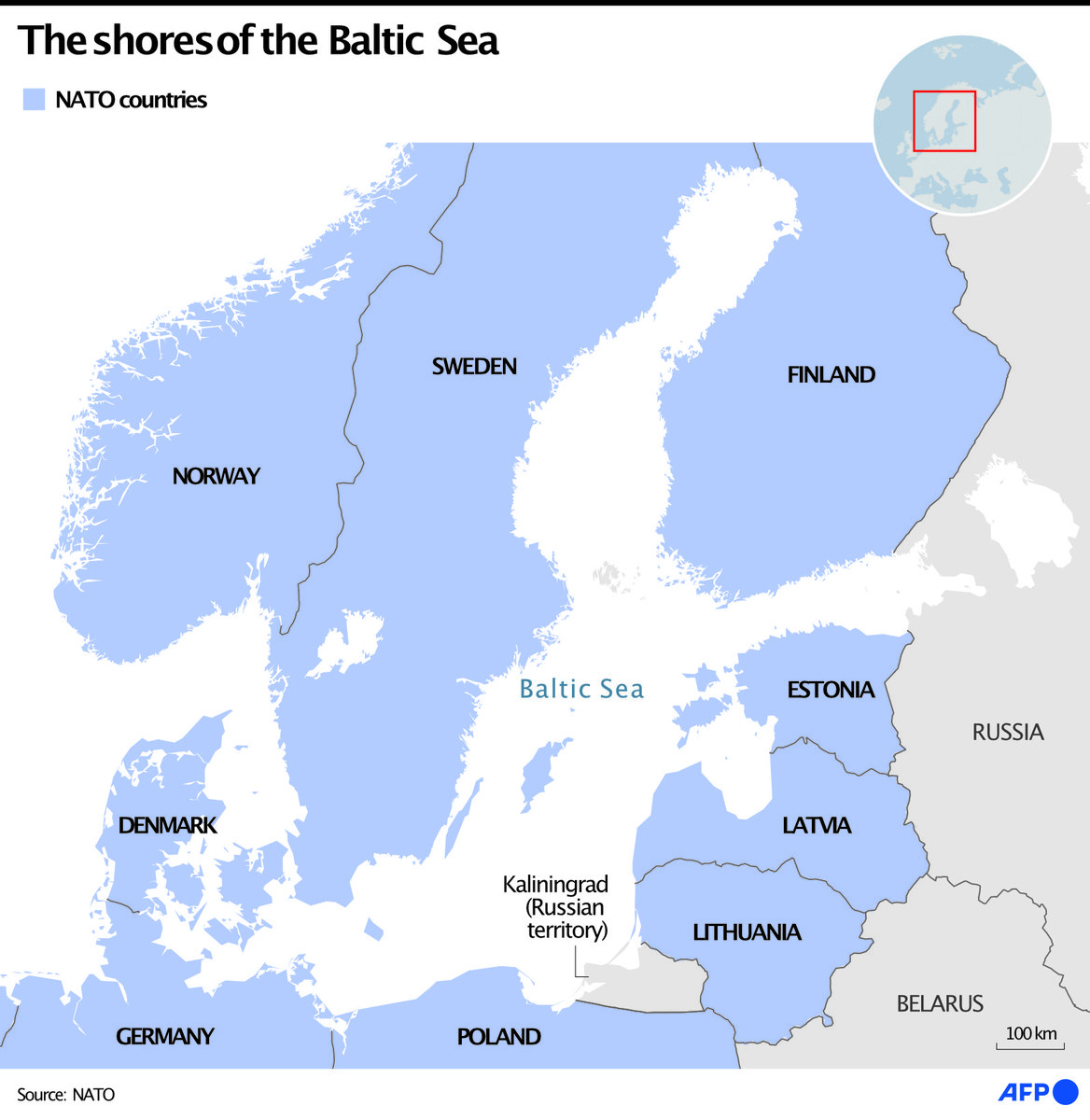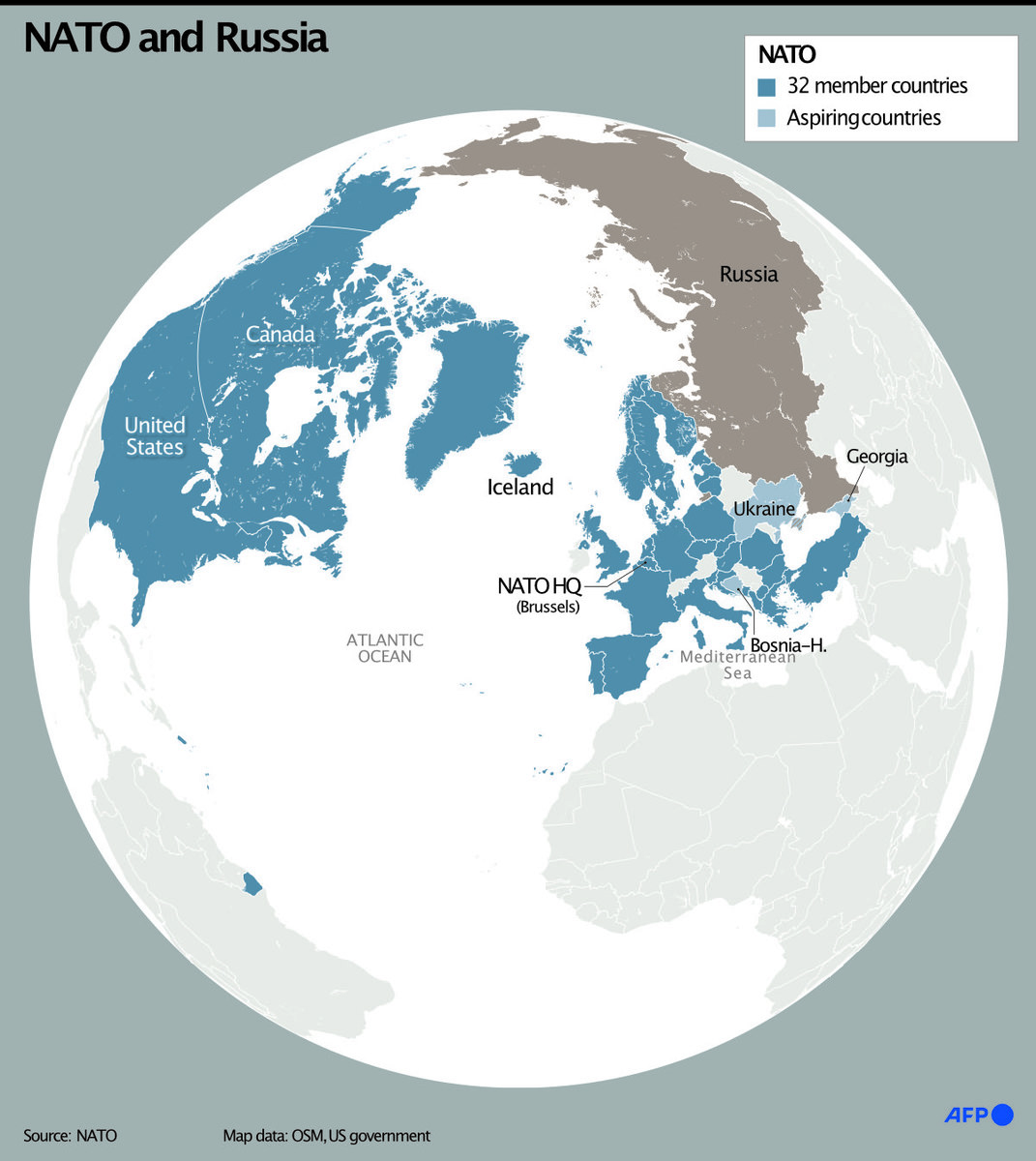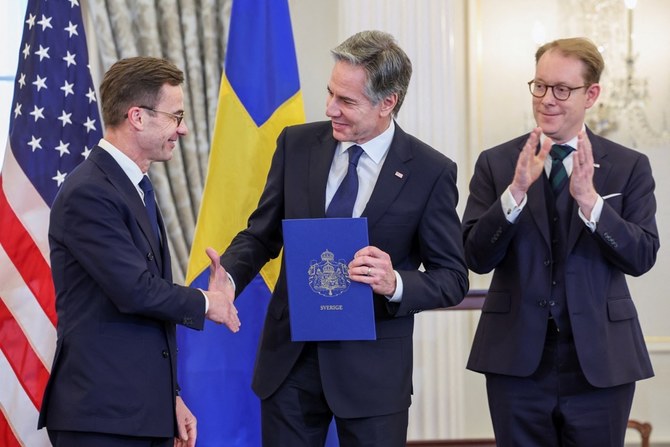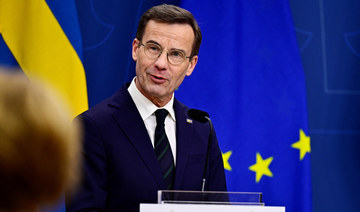WASHINGTON: Sweden on Thursday became the 32nd member of NATO in the shadow of Russia’s invasion of Ukraine, turning the page on two centuries of non-alignment and capping two years of torturous diplomacy.
Days after Hungary followed key holdout Turkiye and became the last NATO member to sign off, Sweden ceremonially handed over accession documents to the United States, the leading force of the transatlantic alliance that promises joint security for all.
“It is a major step but, at the same time, a very natural step,” Swedish Prime Minister Ulf Kristersson said at the State Department.
“It’s a victory for freedom today. Sweden has made a free, democratic, sovereign and united choice to join NATO,” he said.
He later delivered a televised address to the nation from Washington, telling Swedes: “We are a small country, but we understand more than most the importance of the greater world beyond our borders.”

President Joe Biden, whose rival Donald Trump has disparaged NATO as unfairly burdening the United States, said in a statement that the alliance was stronger and “more united, determined and dynamic than ever” with Sweden.
The Swedish prime minister was set later Thursday to attend the annual State of the Union address by Biden, who has been struggling to persuade Trump’s Republican Party to approve new aid to Ukraine.
Secretary of State Antony Blinken said few would have expected Sweden as well as Finland to join NATO before Russian President Vladimir Putin ordered the invasion of Ukraine in February 2022.
There is “no clearer example than today of the strategic debacle that Putin’s invasion of Ukraine has become for Russia,” Blinken said.
Ukrainian President Volodymyr Zelensky also hailed Sweden’s membership, saying: “One more country in Europe has become more protected from Russian evil.”
Sweden has not fought in a war since the Napoleonic conflicts of the early 19th century.
Sweden and Finland, while militarily intertwined with the United States and both members of the European Union, had historically steered clear of joining NATO, formed in the Cold War to unite against the Soviet Union.
Finland and Sweden launched a joint bid quickly after the invasion of Ukraine, which itself had unsuccessfully sought to join NATO — an alliance that under Article 5, considers an attack on one member an attack on all.

Finland successfully joined in April 2023, but Sweden’s membership was stalled by Turkiye.
“Good things come to those who wait,” Blinken said as he received the documents from Sweden. “Some doubted we’d get here; we never did.”
Russia has vowed “countermeasures” over Sweden’s entry into NATO, especially if the alliance’s troops and assets deploy in the country.
Sweden’s blue and yellow flag is expected to be hoisted on Monday at the Brussels headquarters of the North Atlantic Treaty Alliance.
Other NATO allies hailed Sweden’s entry, with the German foreign ministry saying, “It’s good to know you are firmly by our side.”
Before agreeing to ratify membership, Turkiye used its leverage to press Sweden, known for its liberal asylum policies, to crack down on Kurdish militants who have campaigned against Ankara.
Turkish President Recep Tayyip Erdogan later demanded action after protesters, enjoying Swedish laws on free speech, desecrated Islam’s holy book the Qur'an.
In a clear if unstated sweetener, the United States dangled F-16 warplanes to Turkiye, which has faced the wrath of US sanctions over a major military purchase from Russia.
The Biden administration in January approved $23 billion in F-16 warplanes to Turkiye swiftly after it ratified Sweden’s membership.
The United States simultaneously pushed ahead with $8.6 billion in more advanced F-35 jets for Greece, a fellow NATO member and historic adversary of Turkiye.
Even with Turkiye’s blessing, Sweden faced another obstacle as it needed approval of a last country — Hungary, whose nationalist prime minister, Viktor Orban, has often thumbed his nose at Western allies.
The Hungarian parliament ratified Sweden’s membership on February 26. But in one last hiccup, Hungary could not sign the accession document due to a brief absence in the mostly ceremonial post of president, after an Orban ally resigned over pardoning a convicted child abuser’s accomplice.
























